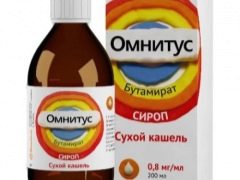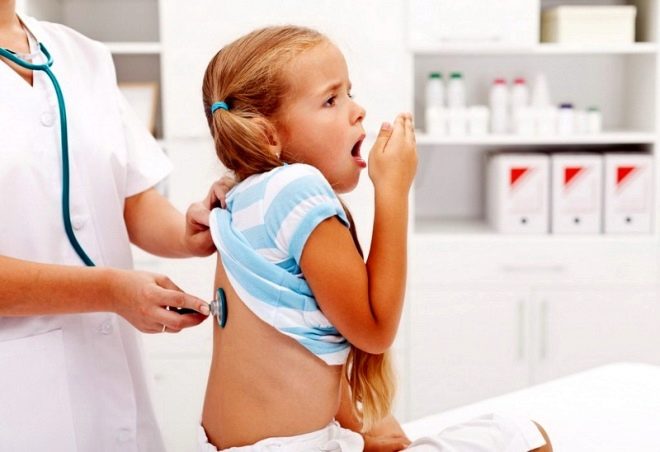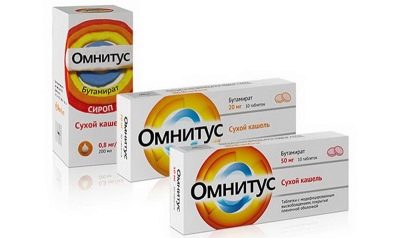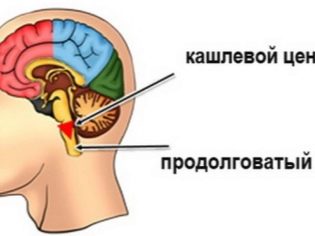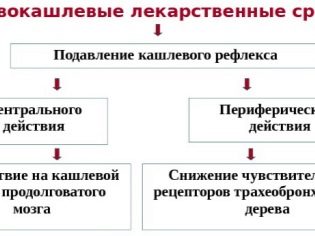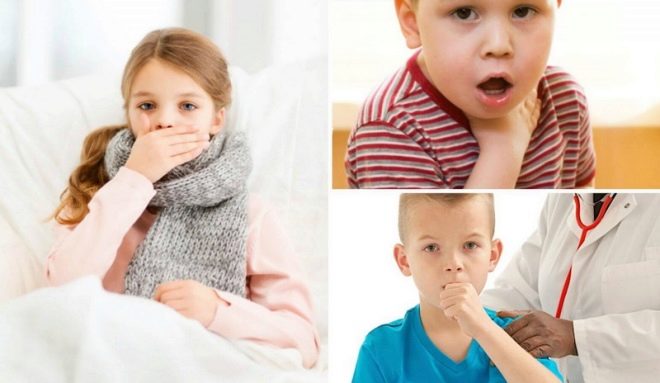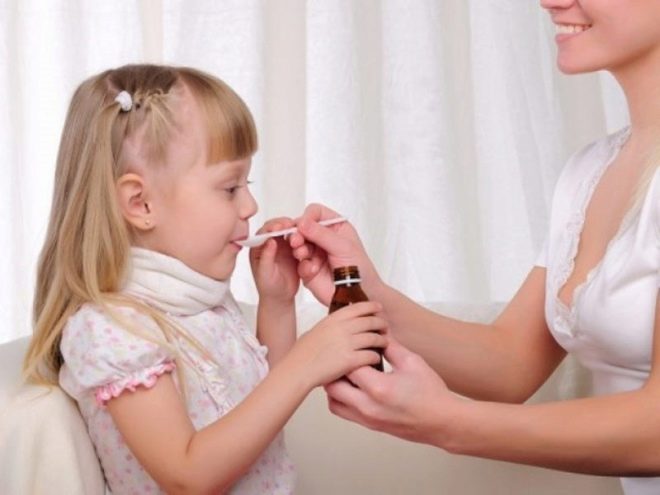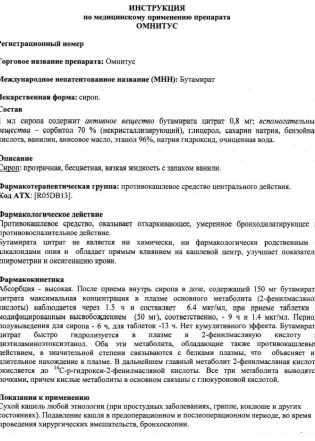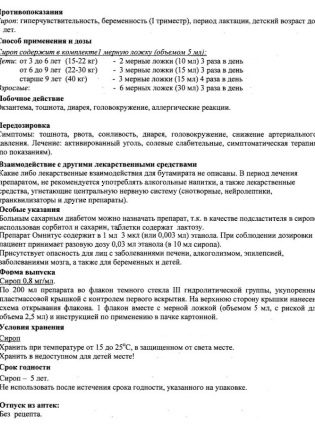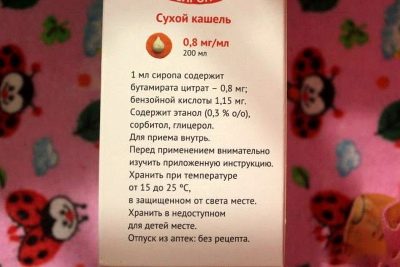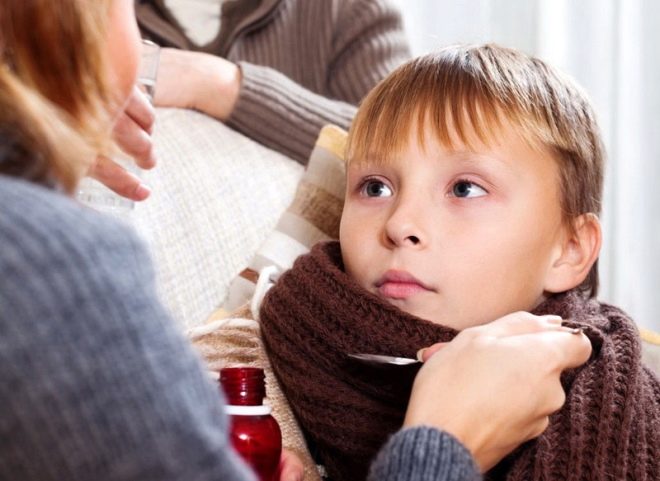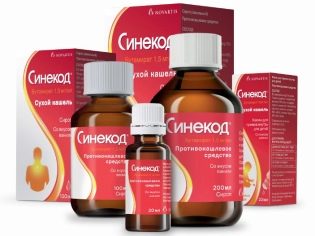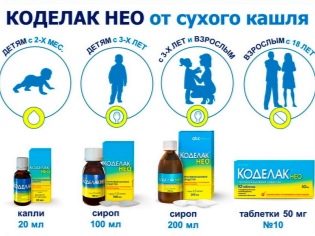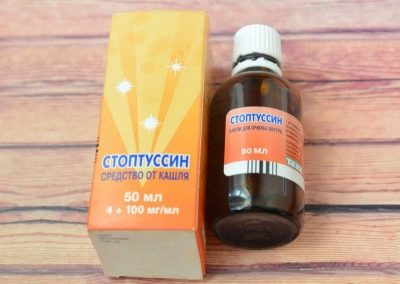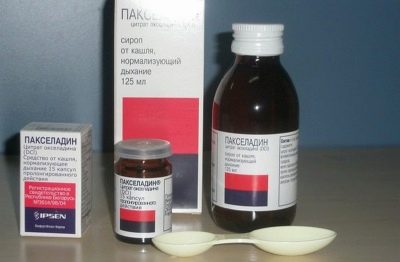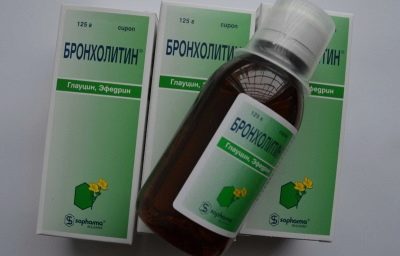Omnitus syrup for children: instructions for use
"Omnitus" refers to a group of antitussive drugs that are in demand for a painful and dry cough, which is also called unproductive. In children, this medicine is used in the form of syrup. But in order to prevent this medicine from harming the baby and bringing the expected benefits, it is worth knowing more about its effects on the body and the dosages allowed before taking it.
Release form and composition
Liquid Omnitus is sold in bottles made of dark glass. One bottle contains 200 ml of solution. It is colorless and transparent, with a slightly viscous texture and smells of vanilla. It tastes sweet, so it is easy to give it to children. A measuring spoon of 5 ml is applied to the bottle, on which there is a risk of measuring 2.5 ml.
The main component of "Omnitus" in the syrup is called butamirate and is contained in the drug in the form of citrate at a dose of 0.8 mg per milliliter. It is supplemented with inactive compounds, among which are sorbitol, sodium hydroxide, 96% ethanol, vanillin and saccharin sodium. In addition, the drug contains anise oil, benzoic acid, purified water and glycerol.
In addition to the liquid form, Omnitus is also produced in tablets. They are coated with a shell, due to which the active substance is released gradually. The action of the tablets is also provided by butamirata. Tablets with 20 mg of this substance can be used instead of syrup from 6 years of age, and the medicine with a higher dosage (50 mg) is not prescribed to children.
Operating principle
The active component of Omnitus has a direct effect on the cough center, located in the brain tissues (this action is called central). Butamirate is able to reduce the activity of this center, as a result of which the nerve impulses cease to be sent to the bronchi, which leads to the cessation of cough. At the same time, the syrup is a non-narcotic agent, which allows it to be used with a dry cough for a long period without the risk of addiction.
However, the treatment of "Omnitus" is not only the oppression of the cough center. Under the influence of butamirath, the lumen of the bronchi expands slightly, and the resistance of the airways decreases, which contributes to a better oxygen saturation of the blood. As a result of such effects, breathing is facilitated, and the oxygen starvation of the tissues is eliminated, due to which the patient recovers faster.
Indications
Omnitus is prescribed as a symptomatic medication if the patient has a dry cough with very little sputum. This symptom occurs in whooping cough, laryngotracheitis, flu, bronchitis, tracheitis and many other diseases. It occurs due to inflammation and swelling of the mucous membrane, and may also appear during irritation of the respiratory tract. In addition, the syrup is used to perform bronchoscopy and various operations on the bronchi, both prior to the intervention or procedure, and to suppress cough in the postoperative period.
How old is allowed?
According to the annotation to the liquid "Omnitus", this medicine is not used in patients up to 3 years. If an antitussive drug is required for a younger child or for an infant, analogues of such a syrup with a lower concentration of butamirate (drops) are used. Since the composition of the drug includes ethyl alcohol, it is recommended to give it to children of any age only after an examination by a doctor.
Contraindications
Omnitus treatment is prohibited not only at an early age, but also in case of hypersensitivity to any of the ingredients in the syrup. Other contraindications for the use of this medication in children are absent, but such a syrup is not recommended when giving a wet cough. Adults are not prescribed for breastfeeding and in the first trimester of pregnancy.
Since there is no sugar in the liquid “Omnitus” (saccharin and sorbitol provide the sweetness of the medicine), the drug is not contraindicated in diabetes mellitus. Since it does not contain lactose, Omnitus tablets can be replaced with this syrup for children over 6 years of age and adults if they are diagnosed with lactase deficiency. Due to the presence of ethanol in the medication, its use in epilepsy, as well as in children with liver pathologies and brain diseases, requires the supervision of a physician.
Side effects
During treatment with Omnitus, diarrhea or nausea may occur. The drug can also provoke a skin rash or other allergic reaction. Some children have dizziness after taking the syrup. With all such negative symptoms, the medication is immediately canceled.
Application
According to the instructions, the drug is metered with a measuring spoon, which is in the box with the bottle. In determining the frequency of administration and the required dosage, they are oriented either on the patient's age or on his body weight, if it differs from the average age indicators.
- If a child is 3-6 years old or its body weight ranges from 15 to 22 kg, then a single dosage of "Omnitus" will be 10 ml, that is, two measuring spoons. The drug is taken three times a day.
- If the patient weighs from 22 to 30 kg, and his age - from 6 to 9 years, then a single dosage is increased to three measuring spoons (15 ml of medication per reception). The medicine is given three times a day.
- For children over 9 years old or with body weight over 40 kg the frequency of use of syrup increases - up to 4 times a day. In this case, a single dose of medication will be, as for younger children, 15 ml.
Overdose
When taking a much larger amount of syrup than prescribed for the child by age, drowsiness, vomiting, dizziness, diarrhea, nausea and other symptoms of overdose are noted. To eliminate them, the patient should be given a sorbent and a laxative drug, and when the condition worsens, a medical examination is needed to prescribe symptomatic therapy.
Interaction with other drugs
Omnitus should not be used with any other medications that affect the brain, for example, along with sedatives.
Terms of sale
It is possible to buy liquid Omnitus at a pharmacy without a prescription from a doctor, but consulting a specialist before using this medicine in childhood is obligatory. The average price of one bottle is 200 rubles.
Storage
The shelf life of the syrup is quite long and is 5 years. While it has not expired, it is possible to keep the medication at home at a temperature of +15 - +25 degrees (no need to put the bottle in the refrigerator). Since the drug is sweet, it should be hidden from small children to reduce the risk of overdose.
Reviews
In most reviews of the Omnitus syrup, the medicine is called a good remedy for dry and barking cough. Its advantages are also low cost, pleasant taste, a short list of contraindications and good tolerability. According to moms, the drug helped with laryngitis, whooping cough, tracheobronchitis and other diseases when an unproductive, painful cough occurred. However, there are also negative reviews, in which they complain that the drug did not help.
Analogs
To replace Omnitus, other drugs based on butamirate will be suitable. Among them is especially popular "Sinekod", which is produced in two liquid forms - drops (they are prescribed to infants from two months) and syrup (it is used in the treatment of children over three years old). Its counterpart is also "Codelac Neo"Represented by the same dosage forms.Both medications are in demand with a dry cough and act on the children's body in the same way as Omnitus.
In addition to these drugs, the following drugs can also be attributed to Omnitus analogues in terms of their therapeutic effect.
- Drops "Stoptussin", who designate from 6 months. Their composition includes not only butamirate, but also a substance called guaifenesin. Thanks to this combination of ingredients, the solution has both antitussive and expectorant effects. Such drops are used for dry irritating cough.
- Paxeladin Syrup, allowed for children over two and a half years old (if their weight exceeds 15 kg). Its active ingredient is okseladin. This substance acts on the center of cough, and also has a stimulating effect on respiration.
- Syrup "Bronholitin», prescribed for children over three years old. Its effect on the cough reflex and bronchi is provided by two ingredients - ephedrine and glaucine. Thanks to these substances, the use of drugs eliminates swelling and dilates the bronchi. Analogues of this drug are the drugs "Bronhoton" and "Bronhotsin", which are also produced in the form of syrup.
Instructions for use of syrup "Omnitus", see the following video.
